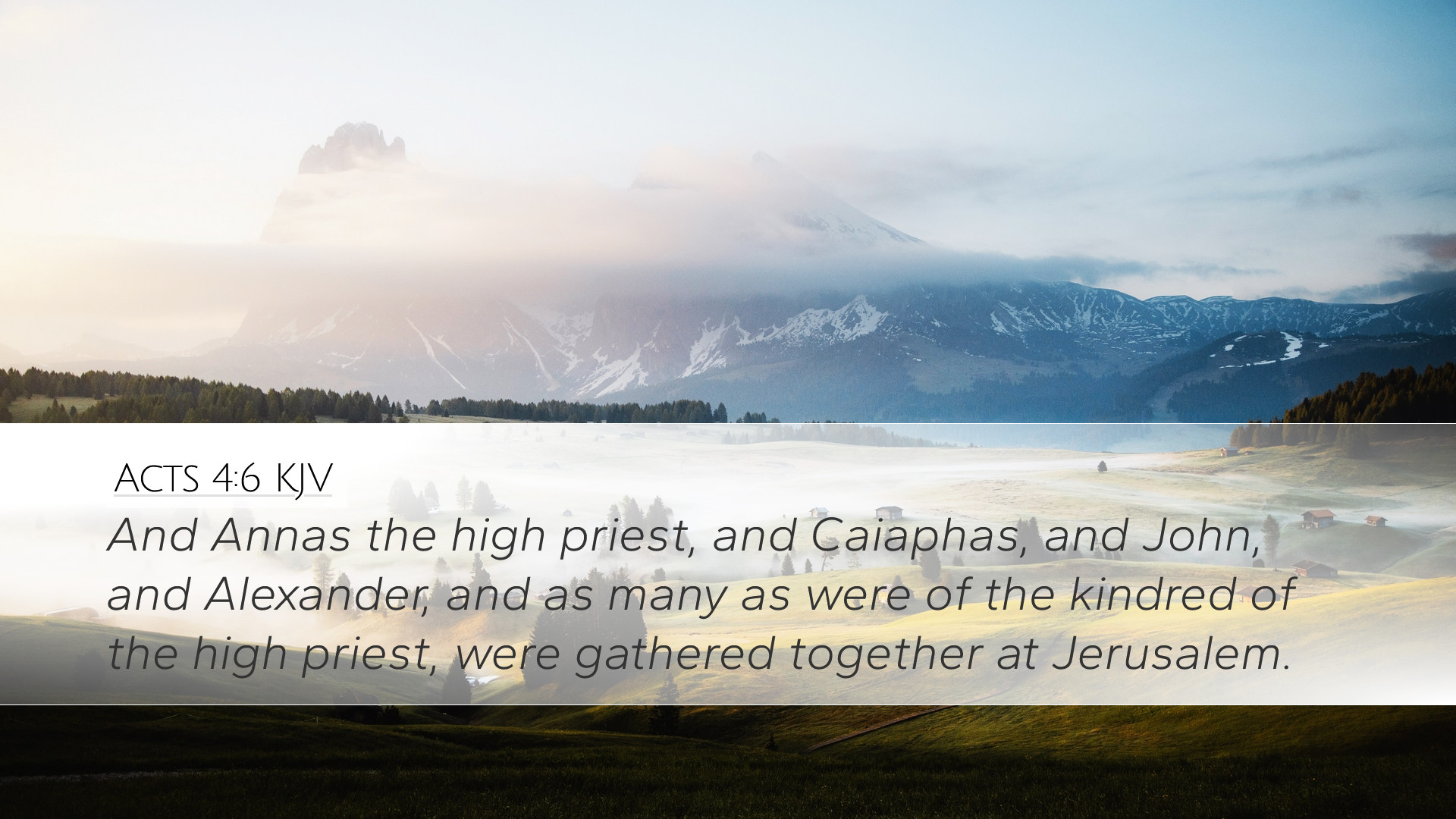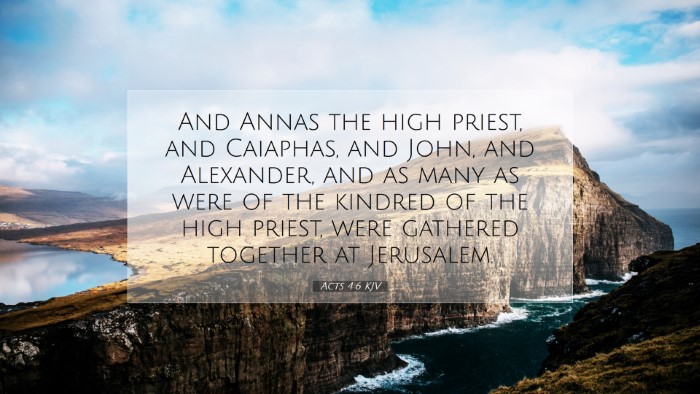Commentary on Acts 4:6
Acts 4:6 states: "Annas the high priest, and Caiaphas, and John, and Alexander, and as many as were of the kindred of the high priest, were gathered together at Jerusalem." This verse highlights the assembly of key religious figures during the time of the apostles, particularly in the context of the early Church's challenges.
Contextual Background
This verse occurs in the context of Peter and John being brought before the Sanhedrin following the healing of a lame man at the Beautiful Gate of the temple. As they preached the Gospel of Jesus Christ, their activities stirred controversy among the Jewish authorities. It is essential to recognize the socio-political backdrop of this event, where the temple and the priestly families played significant roles in Jewish life.
Key Figures
- Annas: Though formally dismissed as high priest, his influence remained significant in Jewish society. He is noted for his involvement in the religious and political affairs of Jerusalem.
- Caiaphas: The son-in-law of Annas and the acting high priest at the time. He played a pivotal role in the trial of Jesus and was a staunch defender of the temple's authority.
- John and Alexander: While less is known about these figures, their presence alongside the prominent priests suggests a network of influence concerning the temple leadership.
Theological Implications
This assembly represents the authoritative body that opposed the proclamation of the Gospel. It signifies the tension between the early Christian movement and the established religious order. Key themes arise from this verse regarding authority, confrontation, and the spread of the Gospel.
Authority Challenged
The presence of these high-ranking officials indicates a direct challenge to the emerging leaders of the early Church. The apostles were acting in the name of Jesus Christ, which threatened the established Jewish authority. According to Matthew Henry, the institutional church faced discomfort from this new, Spirit-led movement, which embraced different tenets of faith and shattered traditional expectations.
The Role of the Holy Spirit
In contrasts with the human authority embodied by these religious leaders, the believers were empowered by the Holy Spirit. Albert Barnes reflects on how the strength of the apostles stemmed not from human wisdom but from divine revelation and empowerment, illustrating the divine backing behind the Gospel's advancement.
Opposition to the Gospel
The assembly of these influential leaders illustrates the persistent opposition faced by the Church. Adam Clarke emphasizes that the gathering depicted more than just a trial; it reflects the broader spiritual war against the work of God in the world. The apostles’ boldness amid such hostility serves as a model for strength in faith.
Lessons for the Church Today
The interaction between the apostles and the Sanhedrin provides critical insights for contemporary church leaders and theologians:
- Steadfastness in Faith: Just as Peter and John boldly proclaimed the name of Jesus in the face of opposition, today's Christians are called to stand firm in their faith despite societal pressures and challenges.
- The Importance of Accountability: The apostles were brought before the authorities, reminding us of the importance of accountability in ministry, where leaders must remain answerable to God and their communities.
- God's Sovereignty in Opposition: The verses leading up to Acts 4:6 show God’s active presence in their ministry despite opposition, encouraging believers that God remains sovereign even in trying times.
Conclusion
Acts 4:6 encapsulates a pivotal moment for the early Church, emphasizing the spiritual and temporal struggles encountered in the dissemination of the Gospel. This verse and its surrounding context call upon believers, leaders, and scholars to engage deeply with the challenges of faith and the ultimate victory of divine authority over earthly powers.


